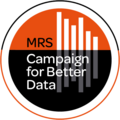The questions that keep data honest

In the last article, I asked whether you’d bet a year’s salary on the accuracy of your data. This follow-up takes that idea a step further – outlining examples of critical questions that I feel clients should ask of suppliers, and that suppliers should be asking themselves, to build true confidence in their data.
The power of the right questions
Data quality isn’t just about numbers; it’s about how rigorously we question the story behind them. The smartest clients don’t take data at face value – they interrogate it. The most credible suppliers welcome that challenge, because they’ve already asked the same questions of themselves.
Below are the questions that separate confidence from complacency. Use them to test not just the strength of your data, but the culture that surrounds it.
Primary questions
- What biases are inherent in your data? And how do you measure, monitor, and if possible, mitigate them over time?
Every dataset carries bias. The difference is whether you can see it, track it, and understand if and how, it impacts interpretation.
- If our business decisions were to be heavily influenced by this data, what are the biggest risks we’d need to be aware of?
High-impact data demands high awareness of its limits.
- What’s the most common way your data has been misinterpreted – and how do you help clients avoid that?
Misinterpretation often causes more harm than inaccuracy ever will.
- If your dataset were audited by an independent third party tomorrow, what areas would you expect them to question most?
Anticipating scrutiny is a hallmark of data maturity.
- If this data were one of the core metrics used to bonus employees, how confident would you be in its accuracy and fairness?
The “salary test” remains the ultimate credibility check.
Follow-up probes
- You mentioned a bias – can you give a real example of when it influenced outcomes, and how you corrected for it?
- How do you validate that your mitigation steps are working – do you have longitudinal evidence or benchmarks?
- What’s the smallest sample size or weakest signal you’d still feel confident reporting, and why?
- When would you advise a client not to rely on your data for a business-critical decision?
- If a rival dataset told the opposite story, how would you demonstrate that yours was the more reliable one? Or is there a good reason why we see what we see?
From interrogation to integrity
The aim isn’t to catch anyone out – it’s to create a culture where evidence stands up to inspection before the consequences of poor quality make that inspection unavoidable.
Because trusted data doesn’t come from having all the answers. It comes from asking the right questions, again and again.
Alex Owens is a digital transformation leader who previously led Unilever’s global People Data Centre, focusing on transforming consumer and marketing

We hope you enjoyed this article.
Research Live is published by MRS.
The Market Research Society (MRS) exists to promote and protect the research sector, showcasing how research delivers impact for businesses and government.
Members of MRS enjoy many benefits including tailoured policy guidance, discounts on training and conferences, and access to member-only content.
For example, there's an archive of winning case studies from over a decade of MRS Awards.
Find out more about the benefits of joining MRS here.















0 Comments